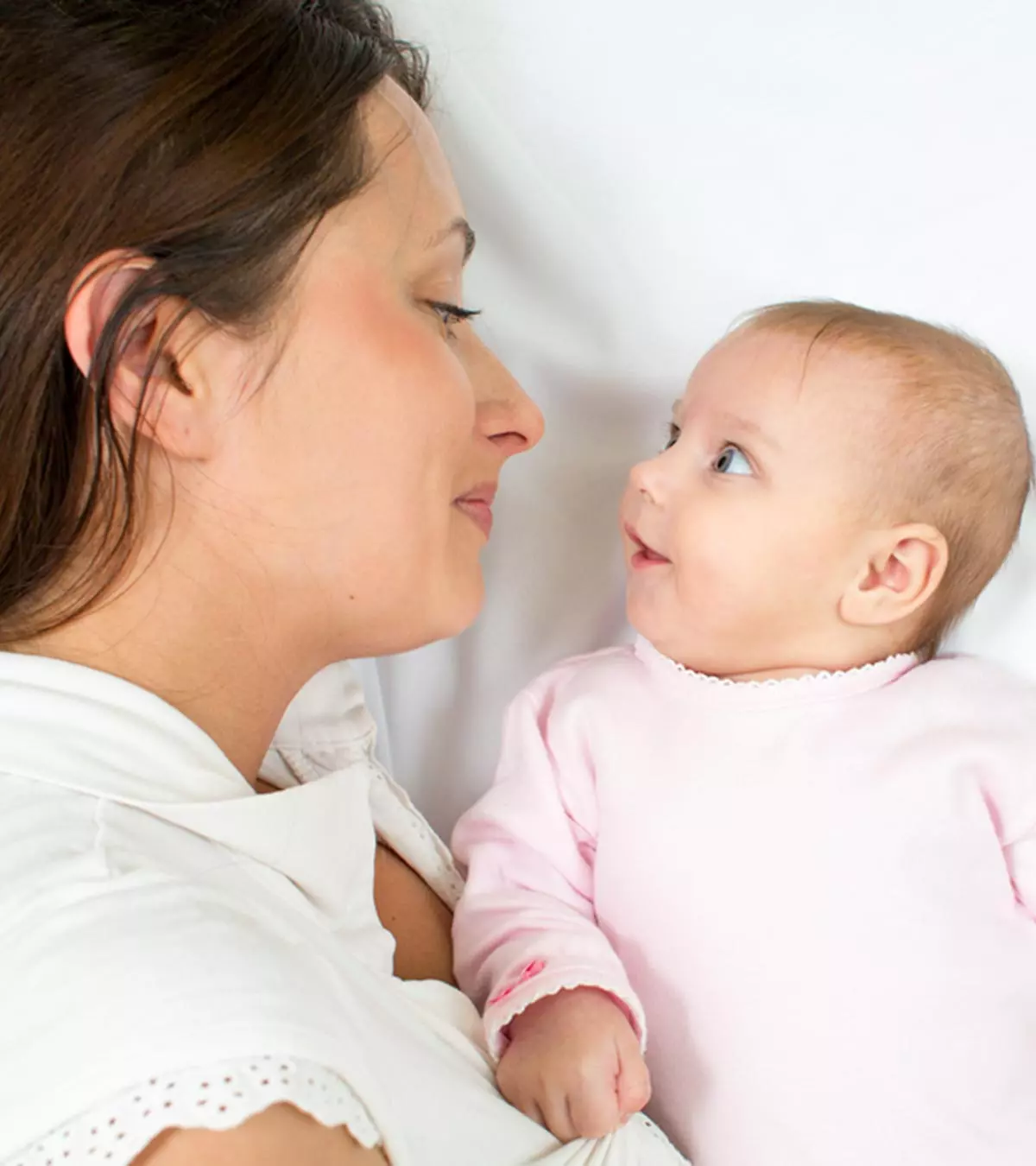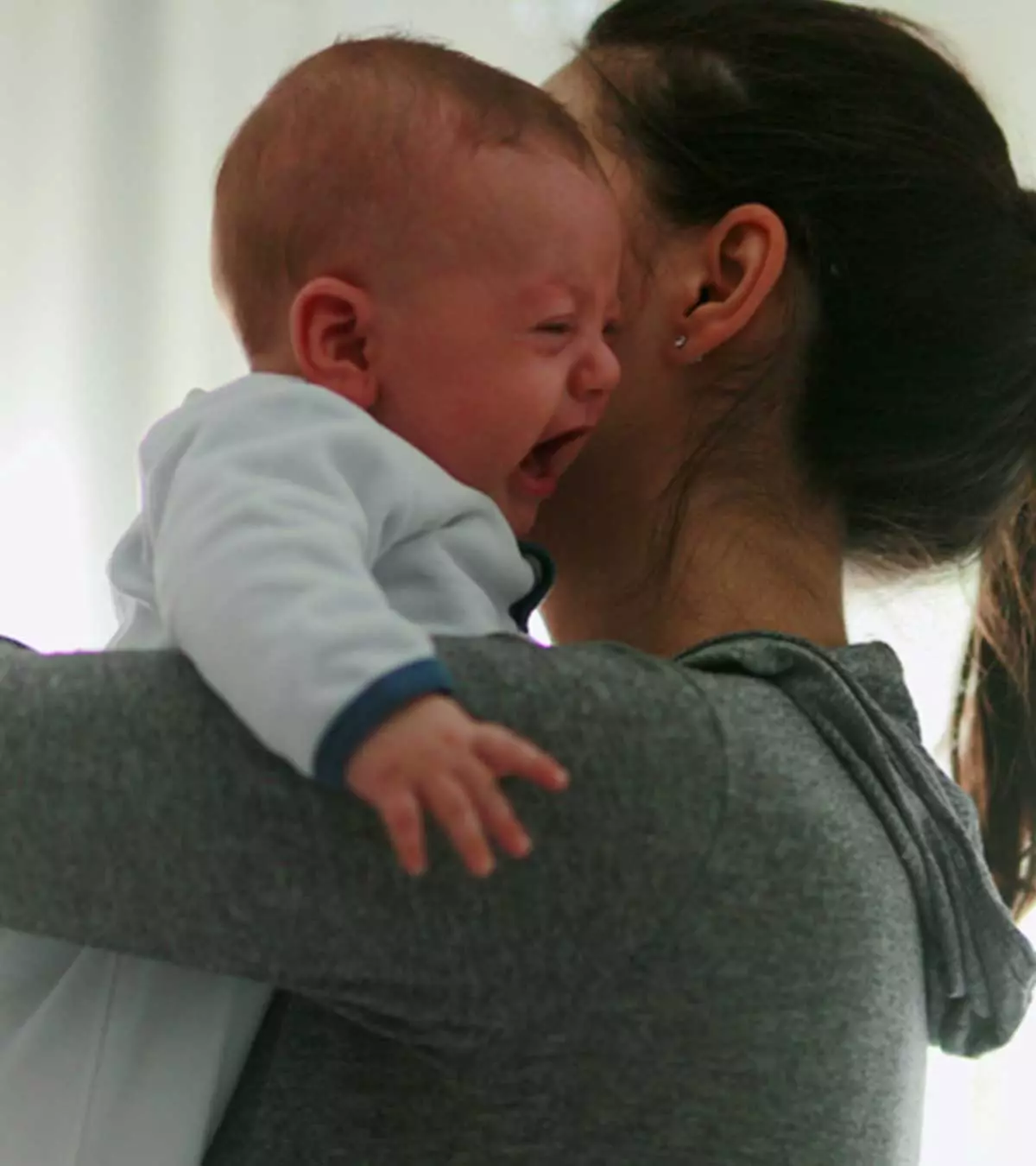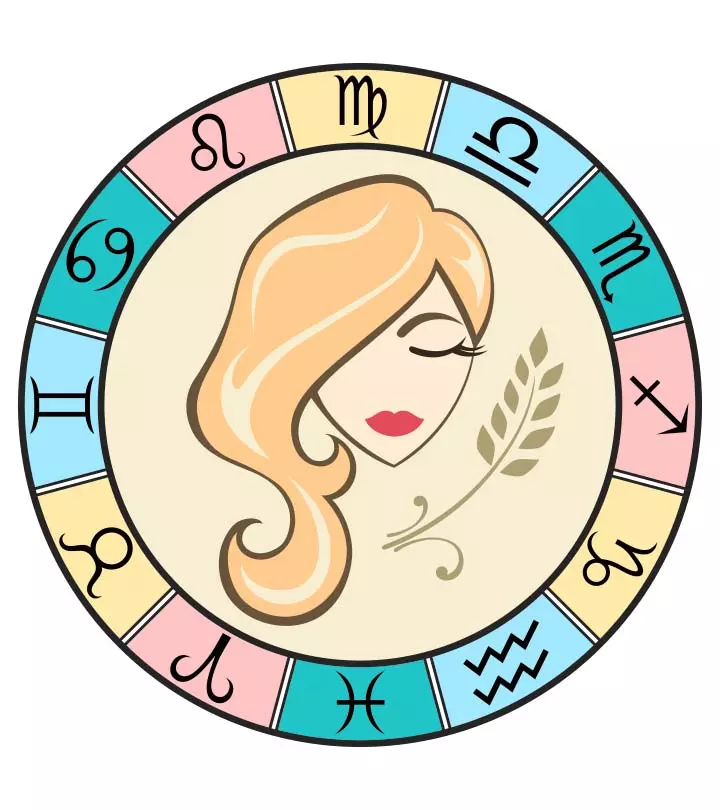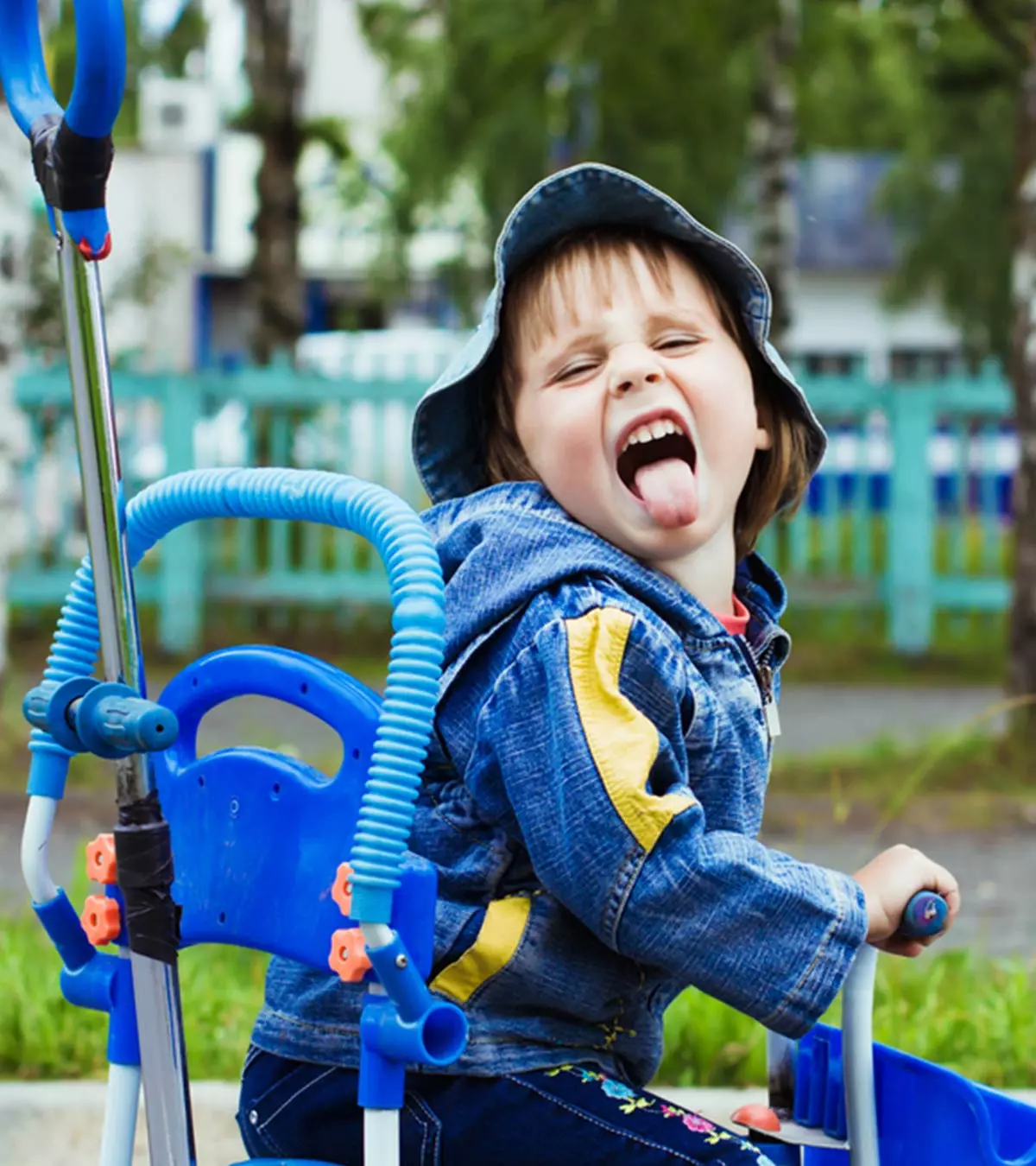
Image: Shutterstock
The struggle to hit the mark with the most appropriate name can be a very complicated process. Some want a unique name for their child or some simply want to find a well-suited name. Parents put a lot of thought into deciding what the name of their newborn baby is going to be. You only want the best for your child, and once you’ve settled on that one perfect name, it fills you with so much pride and joy. The minute you’ve named your baby, you’ll have one important question — when will babies recognize their name? Just like every other milestone such as crawling and walking, this too is a developmental milestone that each child will cross at their own pace. Some might be quicker to recognize their name, while others may be late bloomers.

If your child hasn’t responded to their name yet, do not get into panic mode. It’s normal to freak out and assume that your little one has a language development problem, but in all probability, your child is just a little slower than most. Having said that, when do these little munchkins begin to recognize their names? And when is it a cause for concern if they haven’t? Let’s find out:
When Do Babies Really Begin To Recognize Their Names?

Image: Shutterstock
Babies are incredibly receptive to the different sounds around them. If you notice carefully, babies often begin to recognize their parents’ voice-first — you know this when they start smiling each time you talk. This can happen as early as when the baby is around two months old (1). However, this is not your child’s response to the name; it is your child responding to your very familiar voice. Don’t be disheartened; this is a great sign of development as well. It means that your child’s hearing abilities are good and functioning; it also means that they identify a bond with you.
Soon after they make a connection with you and your voice, they will slowly begin to recognize their name. This typically starts after the baby has crossed six months of age — it may take longer in some kids. It might be hard to distinguish whether the baby is responding to your sound or learning to respond to their own name. Usually, it is a slow process but not an impossible one. When babies start to respond to the name associated with them, it signifies a key milestone in their life. Through this process, the baby begins to work towards creating identity and individuality for themselves (2).
How Do You Know If Your Baby Recognizes The Name?

Image: Shutterstock
Babies indicate that they have made a connection to the name and themselves in different ways. As a parent, you can watch out for a few signs to confirm that your child has started recognizing their name. One of the most common signs is when your baby looks your way every time you call out their name. Another telltale sign is if your baby is preoccupied with something but stops to look at you when they hear their name. Eventually, some babies will start to smile or even make noises, trying to communicate with you when they realize that their name has been called and you are speaking to them.
Can You Help Babies Recognize Their Name?

Image: Shutterstock
As we mentioned above, babies cross each milestone at their own pace. However, you can help your child identify their name by repeating their name often. Address them with their name each time you talk to them. It is also good to practice this early on in the developmental stages of their life. Don’t wait until six months or a year to start calling your child by their name; instead, start early, so that your child gets accustomed to it sooner.
Sometimes, babies take longer than usual and that becomes a cause of worry for parents. Another reason why that may be happening is because of multiple names. By that, we mean calling the child by nicknames, real name, or simple baby talk. If different members of the family like to call the baby differently, it is obviously going to be hard for the baby to relate properly. This might lead to confusion and lead to a bit of delay. Make sure you have a name fixed at home. The child will automatically be able to tell the difference once s/he grows up and goes to school. Ask the rest of your family members and friends who visit to call the baby by its name. For a while, avoid using the child’s nickname, as this can confuse the child.
When Should You Be Concerned?

Image: Shutterstock
Typically, a child should have started recognizing their name by the time they turn one, at the latest. If it takes longer than this, it may be a cause for concern. Research indicates that in some cases if the child has not started responding to their name even after one year, it can be early signs of autism or other developmental disorders. It may also signify a hearing disability. For all of this, early medical intervention can do wonders. Talk to your child’s pediatrician so you can understand what possible issues your child may have (3). However, remember not to jump to conclusions and freak out if your child does not respond within a year. Only if it exceeds that limit, make sure to consult the doctor immediately.
You may worry if your child hasn’t responded to their name even after they’ve crossed six months of age. This can be particularly bothersome if other kids of the same age have already started identifying with their names. It may be due to cognitive or environmental factors or a simple reason that your baby takes longer to grasp things. However, we’ve mentioned this above — no two kids are the same; some kids catch up a little later. So, fret not, your kid will get there! What about your babies? Have they started recognizing their names? Let us know in the comments below!
References
- Auditory recognition memory in 2-month-old infants as assessed by event-related potentials
https://www.ncbi.nlm.nih.gov/pmc/articles/PMC3399741/ - INFANTS’ RECOGNITION OF THE SOUND PATTERNS OF THEIR OWN NAMES
https://www.ncbi.nlm.nih.gov/pmc/articles/PMC4140581/ - Response to Name in Infants Developing Autism Spectrum Disorder: A Prospective Study
https://www.ncbi.nlm.nih.gov/pmc/articles/PMC5370582/
Community Experiences
Join the conversation and become a part of our nurturing community! Share your stories, experiences, and insights to connect with fellow parents.












